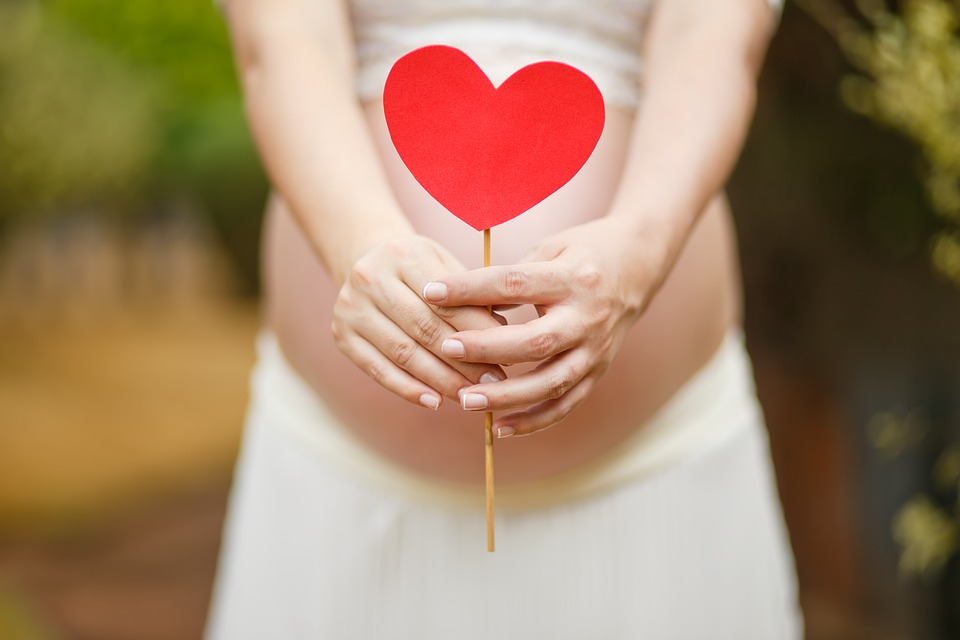Overview
Pregnancy is a period of substantial physiological changes in mothers to provide birth and development to the baby (fetus). One of the common side effects of these changes includes hot flashes. Hot flashes during pregnancy might be quite an unexpected and uncomfortable experience for many women. These are sudden waves of heat, mostly related to menopause, accompanied by sweating and reddening of the face; however, they also occur during times of pregnancy due to increased hormonal fluctuations in the body. With this surge in estrogen and blood supply to the skin, a pregnant woman may feel overheated even when the environment is relaxed. These episodes can best be dealt with in a calm, light-wear state with water consumption and a comfortable, humid temperature. If these flashes are powerful or accompanied by some other symptoms, then a visit to a doctor becomes necessary to rule out any underlying conditions.
Want more information on what might be behind these pregnancy hot flashes and how you can get some relief? Keep reading. If you are looking for answers to questions like when you start feeling hot during pregnancy or if your body temperature rises when you are pregnant, Whether you’re having a boy or girl, feeling hot in pregnancy can happen regardless of the baby’s gender. This article will explain the causes of hot flashes, how they start, and some tips for coping with your symptoms.
Are hot flashes normal during pregnancy?
For some, hot flashes in the first trimester can begin early as the body adjusts to the surge in hormones. Pregnancy flushing is a lot more common than one would expect in that it is estimated that up to 35% of women who are pregnant fall victim to hot flashes at some point or another. These attacks are usually accompanied by a sudden, intense elevation in body temperature—generally in the face, neck, and chest areas. They are often linked with excessive sweating, tachycardia, and a flushing sensation. Hot flashes can strike at any time, day or night, with their frequency and intensity differing greatly from one woman to another.
Hot flashes during the First Trimester of pregnancy
During the 1st trimester, hormonal fluctuations are the primary cause of hot flashes. The body undergoes significant changes, particularly in the levels of estrogen and progesterone. These hormones can affect the hypothalamus, the part of the brain responsible for regulating body temperature, leading to sudden feelings of warmth or heat. Increased blood flow and a faster metabolism, both common early in pregnancy, can also contribute to these episodes. Stress and anxiety, often heightened in early pregnancy due to the body’s rapid changes, can exacerbate hot flashes as well.
Hot flashes during the Second Trimester of pregnancy
In the 2nd trimester, hot flashes may continue as the body adapts to hormonal changes. The blood volume increases to support the growing fetus, which can cause the blood vessels to dilate and create a feeling of warmth. Additionally, as the baby grows, the added weight and pressure can contribute to discomfort and overheating, making hot flashes more likely. The body’s efforts to maintain a stable temperature while accommodating the growing baby can result in more frequent and intense hot flashes.
Hot flashes during the Third Trimester of Pregnancy
By the 3rd trimester, hot flashes can become more pronounced due to the combined effects of hormonal surges, increased blood volume, and the physical strain of carrying additional weight. The baby’s rapid growth in this stage puts added pressure on the mother’s body, increasing metabolic activity and heat production. Additionally, the approaching delivery date can cause heightened anxiety and stress, further triggering hot flashes. The larger size of the uterus can also impact the body’s ability to dissipate heat, making these episodes more frequent and severe as the pregnancy progresses.
This table breaks down the key causes of hot flashes during each trimester for easy reference.
| Trimester | Causes of Hot Flashes |
| First Trimester | – Hormonal Fluctuations: Sudden changes in estrogen and progesterone levels. |
| – Increased Blood Flow: Boost in circulation as the body adjusts to pregnancy. | |
| – Stress and Anxiety: Heightened emotions due to early pregnancy changes. | |
| – Faster Metabolism: The body burns energy more quickly, generating more heat. | |
| Second Trimester | – Ongoing Hormonal Changes: Continued adaptation to shifting hormone levels. |
| – Increased Blood Volume: Expanded blood volume to support fetal growth. | |
| – Growing Baby: Additional weight and pressure on the body. | |
| – Body Temperature Regulation: Increased effort to maintain a stable body temperature. | |
| Third Trimester | – Hormonal Surges: Final preparations for childbirth cause hormone levels to spike. |
| – Increased Metabolic Activity: The body works harder to support the full-term baby. | |
| – Physical Strain: Additional weight and pressure as the baby reaches full size. | |
| – Anxiety and Stress: Heightened emotional state as delivery approaches. | |
| – Impaired Heat Dissipation: Larger uterus affects the body’s cooling ability. |
What causes hot flashes in pregnancy?
“Pregnancy is a journey of many changes, both expected and unexpected. As the old saying goes, ‘Change is the only constant,’ this is especially true for the body during pregnancy. One such change that surprises many women is the sudden onset of hot flashes—a wave of warmth that seems to come out of nowhere. These hot flashes are the result of various factors, from the well-known hormonal shifts to less obvious triggers like diet and stress.” Let us discuss these factors one by one.
Hormonal Fluctuations
The most crucial element is the variation in estrogen levels. Due to rising estrogen levels during pregnancy, the hypothalamus, the brain region responsible for controlling body temperature, may become more sensitive. Because of this increased sensitivity, the hypothalamus may believe that the body is too heated and produce a hot flash to reduce body temperature.
Increased Blood Flow
The body produces more blood during pregnancy to sustain the developing fetus. This increased blood flow can cause hot flashes and warmth, especially to the skin.
Increased Metabolic Rate
Pregnancy elevates the body’s metabolic rate as it works harder to support both the mother and the developing baby. This increased energy expenditure generates more heat, contributing to overheating feelings and triggering hot flashes.
Stress and Anxiety
Hot flashes are a common reaction of the body to emotional stress and worry during pregnancy. Stress hormones like cortisol production may affect body temperature regulation.
Environmental Factors
Warm weather, heavy or tight clothing, and heated environments can exacerbate the likelihood of experiencing hot flashes. Pregnant women are more susceptible to feeling overheated due to these external factors.
Dietary Triggers
Caffeine, spicy foods, and hot drinks are among the foods and beverages that might cause hot flashes by boosting body temperature or circulation.
Thyroid Function
Pregnancy can sometimes affect thyroid function, leading to conditions like hyperthyroidism, where the thyroid gland is overactive. This can increase the body’s metabolic rate and cause symptoms like hot flashes.
Weight Gain
The sensation of warmth can also be attributed to the average weight gain during pregnancy. The extra body mass might increase heat retention and the likelihood of hot flashes.
Dehydration
Dehydration can cause the body to struggle with temperature regulation, leading to hot flashes. Pregnant women need to stay well-hydrated to avoid this issue.
How early do hot flashes in pregnancy start?
Hot flashes are known for surprising them, usually occurring much earlier than one would expect during pregnancy. In some ladies, very early hot flashes or flushes might start hitting during the first trimester, even before the baby bump becomes visible. At this time, estrogen levels start increasing, and, in essence, the changes that come with an increase result in early occurrences. Therefore, these hot flashes themselves can serve as one of the first signs that a pregnancy is causing dramatic changes within the body. And while every single pregnancy is so utterly distinctive from the next, it’s not at all surprising that these little episodes of missing comfort can ease their way into a few short weeks after conception, basically serving as an indicator to women that their bodies are already at work getting ready for the months ahead.
How do you cope with hot flashes during pregnancy?
Managing hot flashes during pregnancy involves making lifestyle adjustments, using home remedies, and, in some cases, taking medications. Here are some ways to deal with sudden bursts of heat:
Prescription Medications
Pregnant women have limited options for prescription medications due to potential risks to the fetus. Healthcare providers may consider low-dose hormonal therapies or other safe medicines in severe cases. It’s essential to consult your family doctor before starting any prescription treatment.
Over-the-Counter Medications
Options for managing hot flashes during pregnancy are limited. Some women find relief using non-hormonal supplements like vitamin E or black cohosh. However, these should be used cautiously and only under the guidance of a doctor, as not all supplements are safe during pregnancy.
Home Remedies
Stay Cool
Wear light, breathable clothing and use fans or air conditioning to keep cool. Sleeping with a cold pack or cooling pillow can also help at night.
Hydration
Drink plenty of water throughout the day to stay hydrated, as dehydration can worsen hot flashes.
Avoid Triggers
Identify and avoid common triggers like spicy foods, caffeine, and stress, which can make hot flashes worse.
Relaxation Techniques
Stress reduction methods such as deep breathing, yoga, and meditation can calm the nervous system and help manage hot flashes.
Layering Clothing
Dressing in layers lets you quickly remove clothing when a hot flash begins, making it easier to manage the sudden temperature rise.
When to consult a doctor?
Knowing when to contact a doctor for hot flashes during pregnancy is essential, as, for the most part, these episodes are harmless in pregnancy and are due to regular hormonal changes. A woman should contact her healthcare provider if:
- If you have severe or persistent hot flashes that are seriously interfering with your daily life, it’s certainly something to mention to your obstetrician/gynaecologist or health professional.
- You should be worried about your hot flashes if you also have other symptoms, such as dizziness, fainting, rapid heartbeat, or shortness of breath. They may be caused by some other problem that needs to be treated by a doctor.
- If you ever feel dehydrated despite drinking enough fluids, and your hot flashes contribute to the issue, it is time to talk to your doctor.
FAQs about hot flashes during pregnancy
Hot flashes do not necessarily indicate that labour is near. They are more commonly associated with hormonal changes throughout pregnancy and can occur anytime. However, some women do experience increased hot flashes in the final weeks due to hormonal shifts as the body prepares for labour.
A body temperature above 102°F (38.9°C) is considered too hot during pregnancy and can be dangerous for both mother and baby. Overheating can increase the risk of dehydration, heat exhaustion, and complications such as neural tube defects. Staying cool is crucial, especially in hot weather or during exercise.
Hot flashes at night, known as night sweats, are common during pregnancy due to hormonal fluctuations and increased blood flow. The body’s temperature regulation system becomes more sensitive, making you more prone to overheating during sleep. Wearing light, breathable clothing and calming the bedroom can help manage these nighttime hot flashes.







